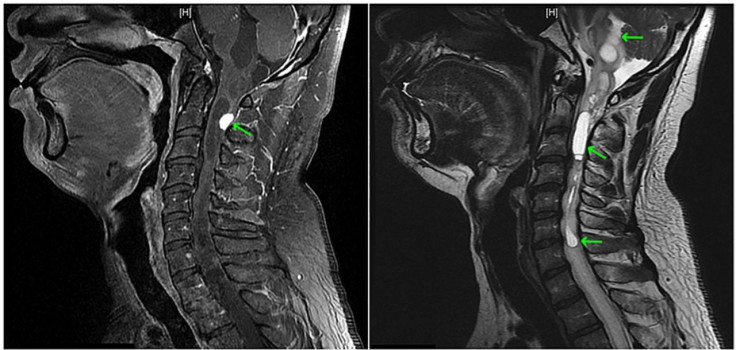Man’s Uncontrollable Hiccups For 5 Days Reveal Massive Tumor On His Phrenic Nerve

Hiccups are harmless, but in some rare cases, they can last for days or even weeks — and may be the sign of something more severe going on, like nerve damage, stroke, or brain injury. In one recent strange case, a man who couldn’t stop hiccuping for five days discovered that a tumor was to blame; it was pressing on the phrenic nerve in his neck.
The phrenic nerve passes between the lungs and heart all the way to the diaphragm, and plays a role in monitoring breathing, which explains the tumor’s influence on hiccups. Hiccups are the result of a momentary spasm and contraction in the diaphragm, followed by the vocal chords quickly closing for a moment. They’re normally caused by minor things that mess up our flow of breathing, like swallowing too much air, eating too fast, coughing, or laughing.
But hiccups can sometimes be the sign of something serious, according to Cancer Research UK. Hiccups caused by cancer may be due to a bloated stomach, an infection in the chest, high blood calcium levels — or a tumor pressing on your brain or diaphragm. That was the case of Chris Sands, who suffered from constant hiccups every two seconds due to a tumor on his brain stem. It’s similar to the most recent case, which is outlined in BMJ Case Reports.
In the report, the authors describe a 35-year-old man who had suffered from recurring hiccups for five days straight in 2014. After taking chlorpromazine, an antipsychotic medication, the hiccups still didn’t subside; the patient started experiencing tingling and numbness in his left arm and vomiting, which was when doctors took MRI scans of his brain and spinal cord. They identified the “grossly orange tumor,” with “decompression of cystic structures,” otherwise known as a hemangioblastoma.
“The tumor was pressing on the roots of the nerves in the cerivical spine,” Dr. Mark Goldin, lead author of the case report, said, according to IFLScience. “The same nerve roots that eventually coalesce into the nerves that go to the diaphragm and trigger hiccups. This particular type of tumor is most often benign, but the problem it causes is simply because of its size — what is called the mass effect. It’s a mass compressing things. Physically cutting it out will get rid of the problem.”
And that’s what they did — neurosurgeons removed the tumor, which cured the man of any complications and further persistent hiccuping. While most hiccuping cases are benign, the authors warn for people to be aware that “intractable hiccups almost always have an underlying pathology.” So if you can’t cure your hiccups with any of these hiccup cures, it may be time to visit the doctor to rule out any other causes.
Source: Goldin M, Hahn Z. A hiccup in holiday plans. BMJ Case Reports, 2016.



























